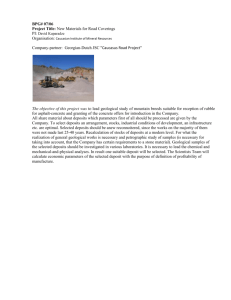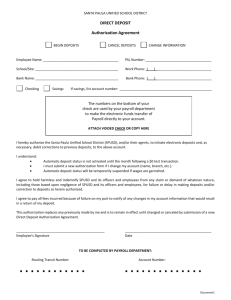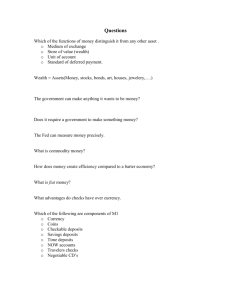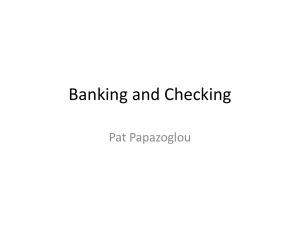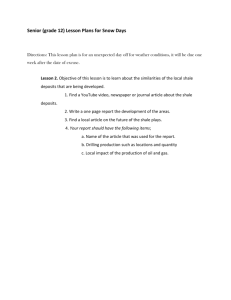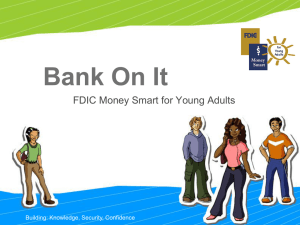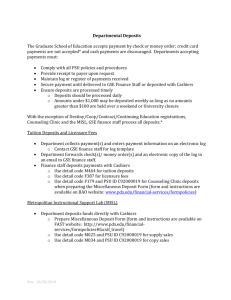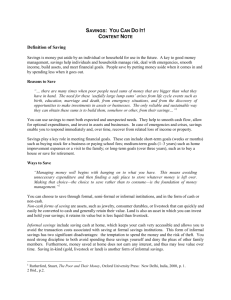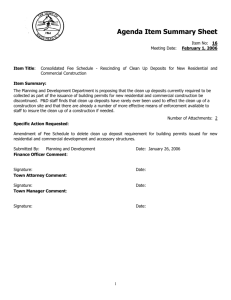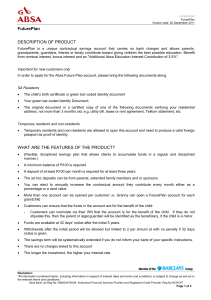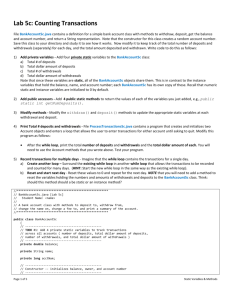emotionbank1 - Elementary 7 Habits!
advertisement
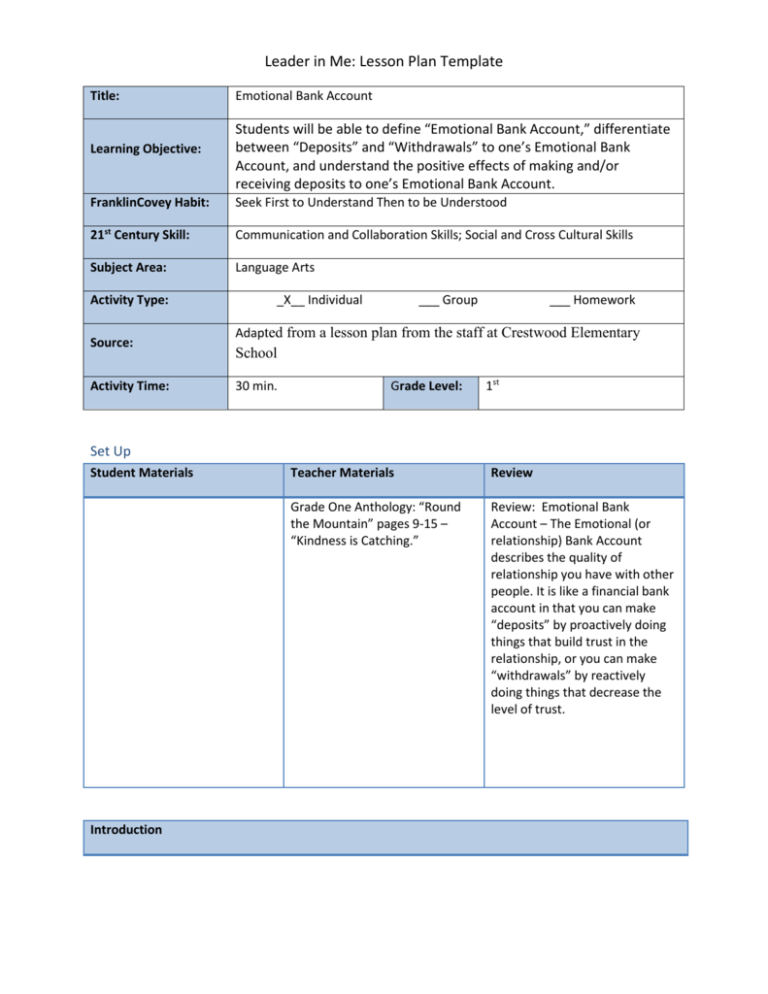
Leader in Me: Lesson Plan Template Title: Learning Objective: Emotional Bank Account Students will be able to define “Emotional Bank Account,” differentiate between “Deposits” and “Withdrawals” to one’s Emotional Bank Account, and understand the positive effects of making and/or receiving deposits to one’s Emotional Bank Account. FranklinCovey Habit: Seek First to Understand Then to be Understood 21st Century Skill: Communication and Collaboration Skills; Social and Cross Cultural Skills Subject Area: Language Arts Activity Type: Source: Activity Time: _X__ Individual ___ Group ___ Homework Adapted from a lesson plan from the staff at Crestwood Elementary School 30 min. Grade Level: 1st Set Up Student Materials Introduction Teacher Materials Review Grade One Anthology: “Round the Mountain” pages 9-15 – “Kindness is Catching.” Review: Emotional Bank Account – The Emotional (or relationship) Bank Account describes the quality of relationship you have with other people. It is like a financial bank account in that you can make “deposits” by proactively doing things that build trust in the relationship, or you can make “withdrawals” by reactively doing things that decrease the level of trust. Ask students if they can describe what a bank is for, and then what a financial bank account is. Banks are businesses where people save their money and borrow money. A Financial Bank Account is used to help people save money. They put their money in the bank account. This is called making a Deposit. As you put more and more money in your bank account, it gets bigger and bigger so they have more and more money. When a person wants money he or she can go to the bank and make a withdrawal, which means to take money out of the bank account. If we take all of the money out of our Bank Account, we say that it is overdrawn and we cannot use it for spending anymore. Activity 1. Tell Students that an Emotional Bank Account is just like a Financial Bank Account, except the Emotional Bank Account is about our relationships with other people, with our family members and with our friends and with all other people. This Emotional Bank Account holds people’s feelings, not their money. 2. We can make deposits in the Emotional Bank Account of somebody else by being kind to them, by using good manners, by making and keeping promises with them, by helping other people to trust us, and by helping them to feel good about themselves. 3. Read Story “Kindness is Catching.” Ask students to list the examples of “Deposits” into Emotional Bank Accounts that were found in the story. Mother fixed the zipper Julie helped Angelo get on the bus Angelo got Amy’s hat back Amy held the door for Brian Brian carried Angelo’s books 4. Ask students to think of how this story could be changed so that everyone in the story made Withdrawals instead of Deposits. 5. Ask students to decide whether the following actions would be a deposit or a withdrawal in someone’s Emotional Bank Account: Help someone carry something heavy – You tell a lie – Hit or kick someone – Apologize when you’ve done something wrong – Be a bully – Let new kids play with you and your friends – Don’t do the homework your teacher assigned – Make your bed and clean up your room everyone morning – Say mean things about people when they are not there – Hold the door for someone – Listen to and obey your teacher When someone apologizes you say, “Thank you, I accept your apology” – Push someone who bumps you in the hall – 6. Think of someone (friend or family member) that you would like to improve your relationship with. Think of this person’s good qualities or strengths and what is important to that person. What are some withdrawals you would like to stop taking; what are some of the deposits you would like to start making? Person: Strengths/Good Qualities: Types of Withdrawals (to stop) Types of Deposits (to start) How can these deposits make this relationship better? Wrap Up Have students list three ways they can make a deposit in the Emotional Bank Account of each of the following people: Their parents – Their brother or sister Their best friend – Other students (in class or around the school) – Their teacher – Assessment 1. Assign students to write a plan of at least three ways they will commit to making deposits in the Emotional Bank Accounts of at least three other people this week. 2. Ask them to report back to the teacher when they have made these deposits. Extensions & Integrations
